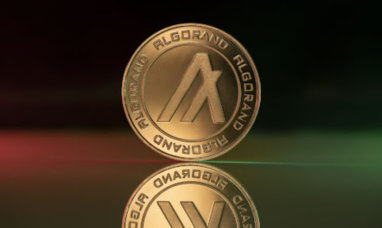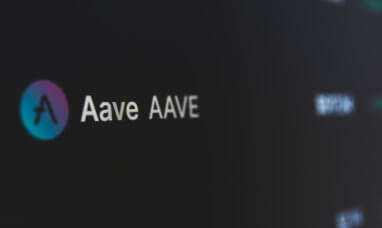Considered a fundraising method for investment, initial coin offerings (ICOs) are ways for cryptocurrencies to start increasing investment opportunities and also generating capital for businesses. Initial coin offerings with blockchain are making financial transactions easier. This is not to say that there are no risks involved, especially considering that ICOs are not regulated, unlike the traditional capital markets. Also, a cryptocurrency drop in price may affect investors.
ICOs present opportunities for startups to raise capital in the same way that an initial public offering (IPOs) does, only ICOs rely on cryptocurrency. However, an ICO and IPO do have some specific significant differences.
The significant advantage of an ICO is the elimination of intermediaries in the fundraising processes. So, if you plan to invest in ICOs, you will essentially be directly communicating with the startup.
ICOs Explained
Initial coin offerings (ICOs) involve using cryptocurrency and blockchain technology to generate capital for businesses and startups. With ICOs, investors exchange their monetary investments in companies for crypto tokens. Thus, an ICO is a crowdfunding scheme through a digital coin to fund startups and other businesses.
In return, you as an investor get ICO tokens for your money; the tokens allow you to enjoy certain features or benefits of a project being developed by the company. Thus, ICOs are becoming increasingly important, as companies are crowdfunded for software projects that may have otherwise had difficulties funding the project were it to rely on traditional structures.
How an Initial Coin Offering (ICO) Works
Creating a whitepaper that enumerates the details of a project is the first step that needs to occur before companies invite investors to participate in an ICO. A whitepaper encompasses the business idea behind the project that is being funded, the problems the project will solve after execution, the capital needed for the transaction, the number of tokens the founder will hold, the number of shares or the investors required, and for how long the project will last.
Afterward, you, as a supporter of an ICO project, receive the ICO tokens in exchange for the fiat currency or other cryptocurrency. Thus, these ICO tokens are similar to shares you buy during an IPO.
The digital tokens listed on the cryptocurrency exchanges then serve some benefits to you. The tokens make you entitle to the company’s dividends or grant you access to some of the company’s services. Thus, the ICO tokens can be security or utility tokens, depending on the functions.
Utility Tokens
When an investor has utility tokens, they have future access to the products or services of the startups. This utility token, also called ‘app coins’ or ‘user tokens,’ are used by startups to fund their blockchain projects while you gain access to the service upon completion. Thus, utility tokens aren’t investments for a share of the company as obtained in the IPO. Additionally, a good structure utility token is not governed by federal laws securities.
Filecoin, for instance, raised $275 million by selling tokens that enable investors or users to gain access to the Filecoin decentralized cloud storage program.
Security Tokens
Unlike utility tokens that are not bounded by federal laws, security tokens are under government regulations for specific reasons. First, security tokens represent values for an external and tradable asset. Secondly, the value of the tokens can change due to others’ efforts. Thus, when security tokens transgress the federal security laws, the project may suffer setbacks and accrue penalties. For security tokens, the tokens can represent shares of a startup. Experts in ICO and cryptocurrency predicted that companies would soon be selling shares through ICOs, which will complement or be an alternative to traditional public offerings.
What Are the Steps in an ICO?
Before companies use ICO for crowdfunding, profound knowledge in technology, law, and finance is essential. Initial coin offering raises capital for startups by leveraging on a decentralized system of blockchain technology. So, before one performs an ICO, the investors and businesses should have an aligned goal. Here are the steps to take before participating in an ICO.
Understanding and Creating Investment Targets
The intention of every ICO is the generation of investment capital. Thus, software companies first identify and create the targets for the crowdfunding campaign and develop the necessary material like a whitepaper to get investors.
Creating the Tokens
The next step for the business is to create a token – whether it be a utility or security token. The fungible and tradable tokens will represent your asset in the blockchain. You need to understand that these tokens are mere modifications of existing cryptocurrencies. Also, these tokens are different from stocks, as tokens grant you access to some products or services of the company, or deliver some stake of the company to you.
Since tokens are modifications of existing crypto coins, companies do not need to write a code from scratch to create a token. Instead, they modify the existing code of coins to create a new one, which is specified on a blockchain.
Promoting the ICO Campaign
While creating the tokens, companies also run online promotion campaigns to attract investors for the projects. However, Facebook and Google, and some other online platforms, have banned the promotion of ICO campaigns.
Initial Offering
Once startups get investors through the campaign, they offer investors the ICO tokens, which are structured in many steps. The company uses the funds raised from the investors to launch a new service or product. You will use the tokens gotten in exchange for your money to have access to the products or hold the tokens till they appreciate.
What Are the Types of ICO?
The evolution of cryptocurrency and blockchain technology has led to the backing ICOs as a significant fundraising scheme. In 2017, companies generated over $7 billion through ICOs, and that amount then almost doubled in 2018.
Not all ICOs function the same way. ICOs have two types, which are the private and public ICO.
Private ICOs
A private ICO has a limited number of investors to participate in the fundraising process. Thus, the investors must be accredited investors and institutions. Also, in a private ICO, a company sometimes sets a limit on the amount to invest.
Public ICOs
The public initial coin offerings are open to the entire populace for crowdfunding. Public ICOs are similar to democratized investment schemes as everyone can invest in the project. However, many companies developing a project prefer private ICOs because of regulatory concerns in public ICOs.
Initial Coin Offering (ICO) vs. Initial Public Offering (IPO)
Traditional companies generate funds for business growth and expansion through their profits; this means companies rely solely on their efforts, which may take a while. Also, companies may look for an inflow of cash through investors to start a project, but they will set a portion for the investors as stake. Another way is to raise funds through crowdfunding, where individual investors can buy shares from the company through IPO.
However, ICOs work in an entirely different format; instead of getting shares in the company, ICOs work with supporters because the supporters donate their money for the company in exchange for some returns on their investment. Thus, ICOs are ‘crowd sales.’
Unlike the primarily regulated IPOs, ICOs are unregulated and have no direct relationship with government organizations. Also, since it is also decentralized, ICOs are more accessible in structure than IPOs.
What Are the Advantages and Disadvantages of ICOs?
Advantages
Unlike in IPOs, where investors receive shares of stock in a company, there are no shares in ICOs. Thus, ICO investors receive tokens equivalent to their money. In an ICO, you give out funds in terms of Bitcoin, Ethereum, or other common cryptocurrencies to exchange new tokens under development.
Before you invest in an ICO, you should know that there are no legal guarantees or baseline values of the tokens you will receive. Thus, startups generate, receive and distribute to investors according to the terms of the ICO.
Also, an ICO is very easy to create, and tokens are easy to launch because numerous platforms exist to generate tokens in a brief period. ICOs have the potential for high returns on investments, and often this is the primary reason some investors key into ICO.
Disadvantages
As great as ICOs can be in generating investment funds for companies, and the promise of high returns for investors, ICOs do come with some risks and challenges. Many people now invest in ICOs because of the enormous returns gained by the early investors; however, this zeal and enthusiasm among the new investors could spell doom if not correctly plan for.
ICOs can be risky due to associated frauds and scams by some fraudsters, which occur often since ICOs are quite unregulated. And, because it is unregulated, overzealous investors’ loss may not be recovered from any fraudsters or a cryptocurrency drop in price.
ICOs also risk banning from government and financial institutions. The People’s Bank of China disallowed ICOs because it was counterproductive to the country’s financial stability; thus, it was banned, and prices of cryptocurrency dropped globally. Facebook, Twitter, Google, and other social media platforms have also already prohibited the advertisement of ICO.
Some Examples of ICOs
Ethereum’s ICO
Ethereum’s ICO was one of the most successful ICOs and among the earliest pioneers. In 42 days of creating the tokens in 2014, it raised almost $18 million. Each ICO token was also worth $1,417 in 2018 and was one of the most successful ICOs in history.
IOTA
IOTA’s ICOs in 2015 offered an ROI of 332,500% for early investors. The developer sold about a billion of the tokens, and they raised above $400,000; each coin was also worth $5.69 then. Although the price isn’t as high as other ICOs, the ROI for the investors makes it one of the most successful ICOs.
ICO Regulations
One may wonder if governments of various countries will key into ICOs to regulate them due to the associated scams. However, different countries have approached ICOs regulations differently. For instance, China and South Korean governments already outlawed ICOs as they are counterproductive to its economic stability leading to cryptocurrency drop.
Australia, United Arab Emirates (UAE), Hong Kong, and New Zealand have published guidelines to govern ICOs. On the other hand, the United States, Canada, and some European countries are currently developing some policies to govern ICOS.
Final Thoughts
ICOs offer swift and exciting access to funds for startups and businesses to develop a new project in exchange for tokens or access to some aspect of the service under development. However, ICOs are different from IPOs as the former does not guarantee shares for investors. IPOs, meanwhile, ensure shares of stocks for the investors.
Ethereum and IOTA’s ICOs are some of the most successful ICOS in recent years. This is not to say that ICOs are always rosy, as many fraudsters now use the decentralized nature of blockchain technology and ICOs to scam overzealous investors.
Featured Image: Megapixl








